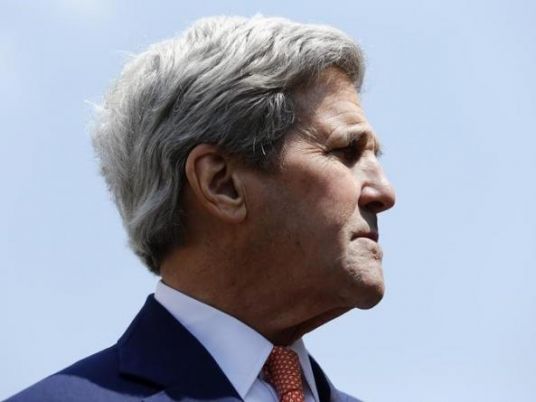
U.S. Secretary of State John Kerry will visit Egypt on Sunday for the first time since the army toppled the country's first freely elected president on 3 July, state news agency MENA said.
It said the visit to Egypt, whose alliance with the United States has come under strain, would only last several hours.
Ties between Washington and Cairo have deteriorated since the overthrow of President Mohamed Morsy, an Islamist who was elected last year. A popular uprising toppled authoritarian ruler Hosni Mubarak, a longtime U.S. ally, in February 2011.
In a sign of the tension, the United States said on 9 October it would withhold deliveries of tanks, fighter aircraft, helicopters and missiles as well as $260 million in cash aid to Egypt pending progress on democracy and human rights.
Kerry arrives a day before Morsy and 14 other Brotherhood leaders go on trial on charges of inciting violence.
Morsy's removal has posed a dilemma for U.S. President Barack Obama in dealing with a longstanding strategic ally.
On the one hand, he wants to maintain ties with the most populous country, which has a peace treaty with Israel and controls the Suez Canal waterway linking Europe and Asia.
On the other, Obama does not want to be seen as acquiescing in the ouster of an elected leader, even if he is an Islamist from the Muslim Brotherhood who had come to be viewed by Washington as ineffective during his turbulent year in office.
The U.S. government has repeatedly urged the army-backed interim authorities to govern in a more inclusive manner – code for finding a modus vivendi with the Brotherhood and making progress toward a restoration of democratic rule.
The Brotherhood refuses to work with the military, which it says staged a coup and sabotaged Egypt's democratic gains after the revolt that toppled Mubarak. The military denies it carried out a coup, saying it responded to the will of the people.
Relations between the United States and Egypt are now in turmoil and the entire Middle East could suffer, Egyptian Foreign Minister Nabil Fahmy said last month.
He told state-run Al-Ahram newspaper that Egypt had depended on U.S. aid for too long and that Washington was wrong to assume Cairo would always follow its line.




